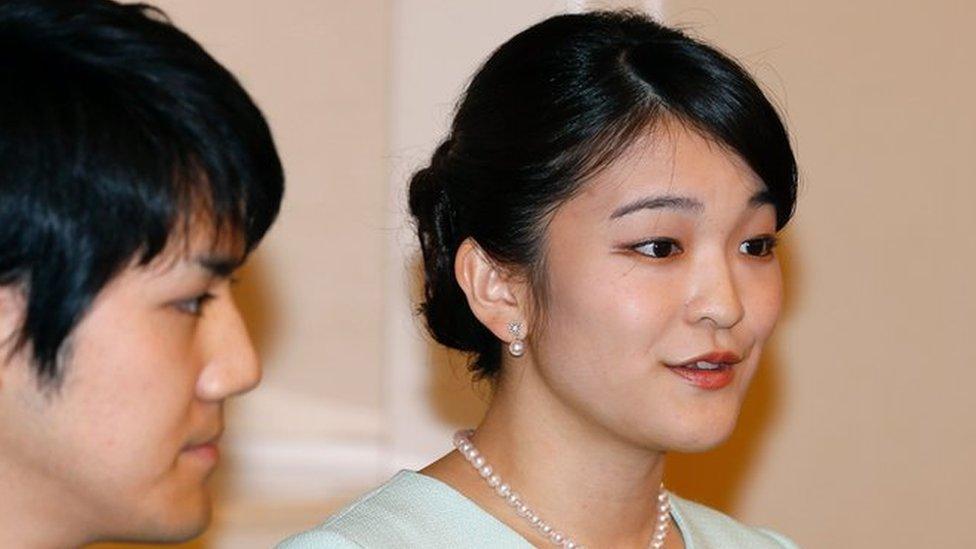Tokyo school plan to adopt Armani uniform sparks criticism
- Published
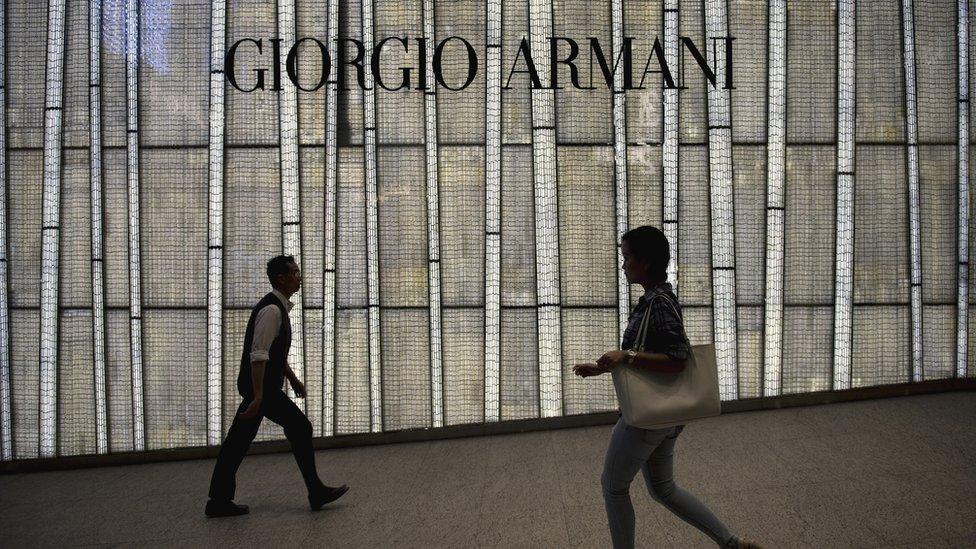
The school said it wanted to reflect its status as a "landmark"
A public elementary school in Japan is facing criticism over its plan to adopt uniforms designed by Italian luxury label Giorgio Armani.
According to local media reports, the school in Tokyo wants to introduce uniforms that cost more than 80,000 yen ($730, £525) each.
Parents complained it was unaffordable and the plan was even brought up in parliament.
The school is located in the upscale Ginza district.
The Taimei Elementary School sent a letter to parents last November in which the principal explained that the school was changing its uniform to better reflect its status as a "landmark" in Ginza, according to the Huffington Post Japan, external (link in Japanese).
The move triggered five cases of complaints from parents.
"I was surprised and wondered why such luxury uniforms have been picked for a public elementary school," a unnamed mother told the Huffington Post.
Although school uniforms are not strictly compulsory in public schools in Japan, most students choose to wear them.
'Clearly expensive'
Online, people were equally critical of the news.
"I heard that school uniforms were originally invented so kids from different income families wouldn't face discrimination," one person pointed out on Twitter.
"Children are not aware of famous brands... Are you saying a child wearing Armani will be better developed than a child who doesn't wear it?" another user asked.
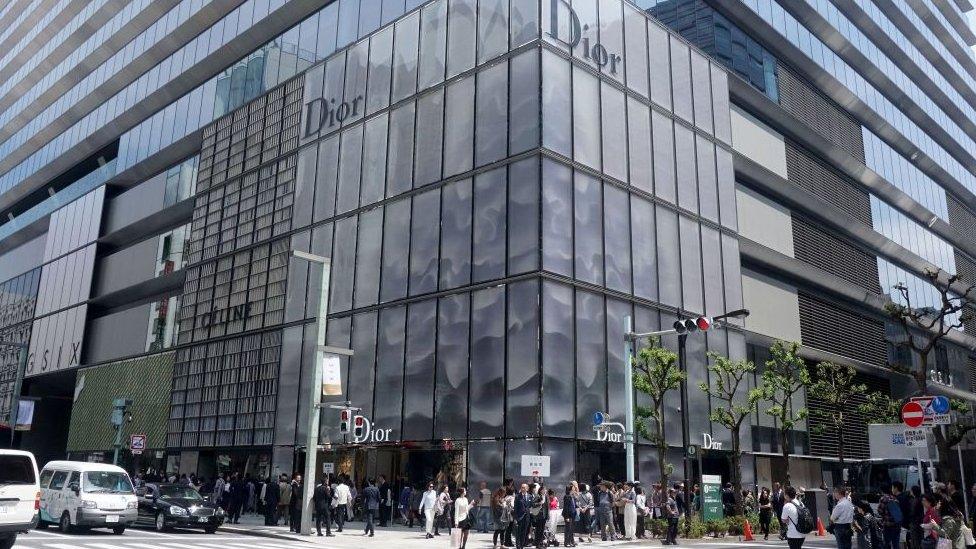
Ginza is Tokyo's answer to the Champs-Elysees in Paris or New York's 5th Avenue
At a meeting of the House of Representatives' Budget Committee on Thursday, the issue was brought up by a lawmaker who said the school had to consider the cost to parents.
In response to the issue, Finance Minister Taro Aso said the uniform was "clearly expensive", and raised concerns that students could not afford it.
Similarly, Education Minister Yoshimasa Hayashi said the school should have discussed the matter with parents before making the decision, reported news outlet NHK.
The principal of the school later issued a statement saying that he "accepted criticism" and promised to provide parents with sufficient explanation.
- Published29 January 2018
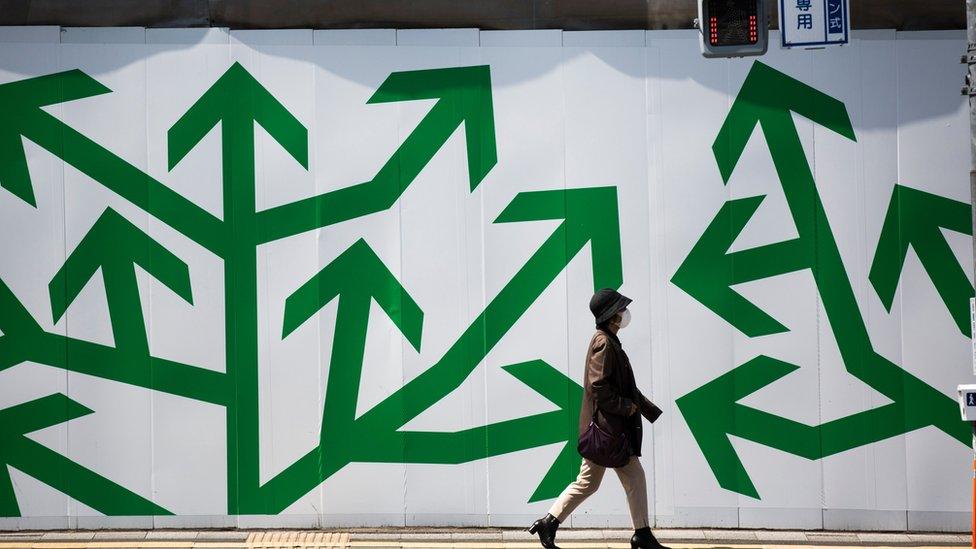
- Published13 January 2011
- Published27 October 2017
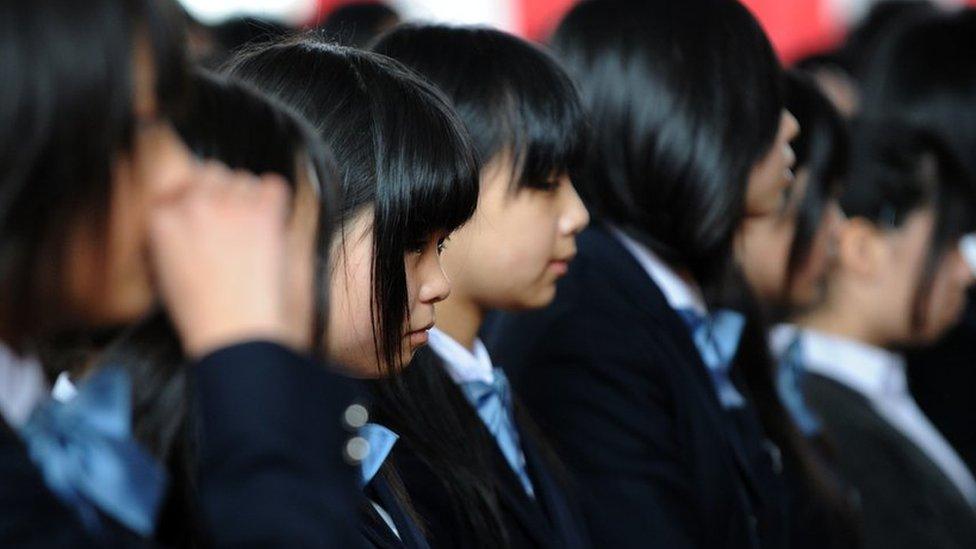
- Published6 February 2018
